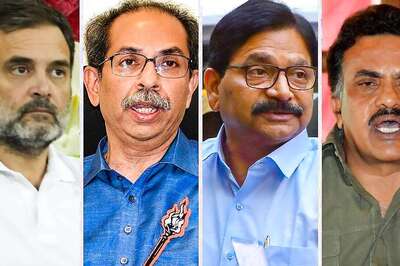
views
KALPAKKAM: Amid murmurs of disquiet from green activists, the Department of Atomic Energy (DAE) on Tuesday confirmed that two more nuclear reactors are in the pipeline at Kalpakkam. They would be similar to the 500 MWe Prototype Fast Breeder Reactor (PFBR). With four reactors under construction and the DAE considering 10 more, the Union government appears determined to enhance nuclear energy’s share in India’s energy mix.“The PFBR is the first of its type in India. It is indigenously developed. The first of a kind always takes time to create. “But once we get it done then replicating technology becomes quicker and cheaper,” said SC Chetal, Director of the Indira Gandhi Centre for Atomic Research (IGCAR).Refusing to comment on the expected date of completion of the PFBR, Bhavini Project Director Prabhat Prasad said work was on in full swing and commissioning of parts of the facility had already begun. The facility has also begun simulating various possible scenarios to train personnel for when it actually hits criticality. “We can only say we are expecting to finish construction work by mid-2012. We will not declare a date for criticality because we are no in hurry. “The PFBR will go critical only after we are 100 per cent convinced that everything is right,” said Prabhat.The scientists sought to allay fears over the safety of nuclear power plants, saying every generation of reactors was safer than its predecessor, thanks to experience and technological advances. They dismissed allegations of high radiation levels and diminishing of fish catch near in the surrounding areas, saying the reactors have to follow a strict set of norms, procedures and standards. If the allegations were true, the reactors would have been shut down long ago, they claimed.“We are following international guidelines placed by organisations that exist to ensure that reactors are not doing things they are not meant to do. We are also following more India-specific regulations placed by our own regulator. It is perfectly safe, to put it simply,” said Chetal.



















Comments
0 comment